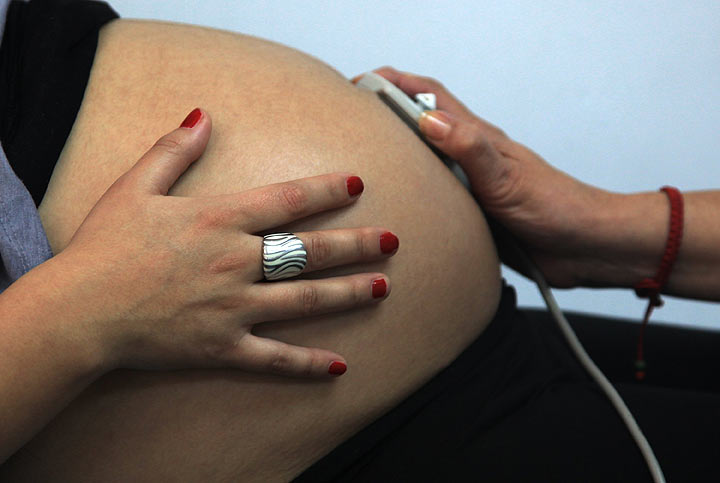TORONTO – Each Christmas, families recount the story of the birth of Jesus, born to the Virgin Mary – but are virgin births happening in modern life? About one per cent of young U.S. women say they’ve given birth while still being a virgin, according to a longitudinal study released Wednesday.

But the researchers warn of their findings: self-reporting answers on sensitive topics such as sex and losing your virginity is probably affected by personal bias, faulty memory or purposely misconstruing questions.
Virgin births have been documented in other animals – pit vipers, boa constrictors, sharks and Komodo dragons, for example. But that’s through asexual reproduction. Scientists at the University of North Carolina at Chapel Hill hoped to look at pregnancy before sexual intercourse in U.S. adolescents and young women.
READ MORE: Newborn baby’s smell is as addictive as drugs or food: study
They looked at the data for 7,870 women who were interviewed confidentially and many times over the course of 14 years. Each time, they were asked about sex, use of assisted reproductive technology and pregnancy history. Parents were even asked about how much they talked to their kids about sex or birth control. The girls were about 12 to 18 years old when they first entered the study.
Of the almost 8,000 women tracked since the 1990s, 0.5 per cent of women said they were pregnant while they were still virgins and didn’t use reproductive technology.

Get weekly health news
READ MORE: How bacon and sausages are changing your sperm quality
When looking through the responses, the lead author Amy Herring told the National Post that her team was certain they’d made a mistake in their data tracking. But it turns out, the answers were right.
“It wasn’t a programming error, that is how they responded. They did say, ‘I am a virgin,’ and they did say ‘I have had a pregnancy,’” she told the newspaper.
READ MORE: Childbirth economics: What older moms and teenage pregnancy say about opportunity in Ontario
These pregnant virgins were also more likely to have parents who didn’t talk to them about sex and birth control. They were also more likely to have signed chastity pledges, promising to abstain from sex.
Pregnant virgins also tended to be young – at about 19 years old – and they gave birth to boys more often.
“Some of the associations we saw where women who had signed chastity pledges were more likely to report in this way, that sort of leads you to think ‘maybe there’s some sort of respondent bias’ where they don’t want to actually say they had sexual intercourse, and that’s driving the response,” she told the Post.
READ MORE: Toronto hospital launching landmark study following pregnant women and their babies
Her full findings were published in the British Medical Journal. Each Christmas, the journal publishes quirky science papers – among this year: a local baby boom nine months after a home sports team triumph to whether an apple a day really does keep the doctor away.
carmen.chai@globalnews.ca
Follow @Carmen_Chai






Comments